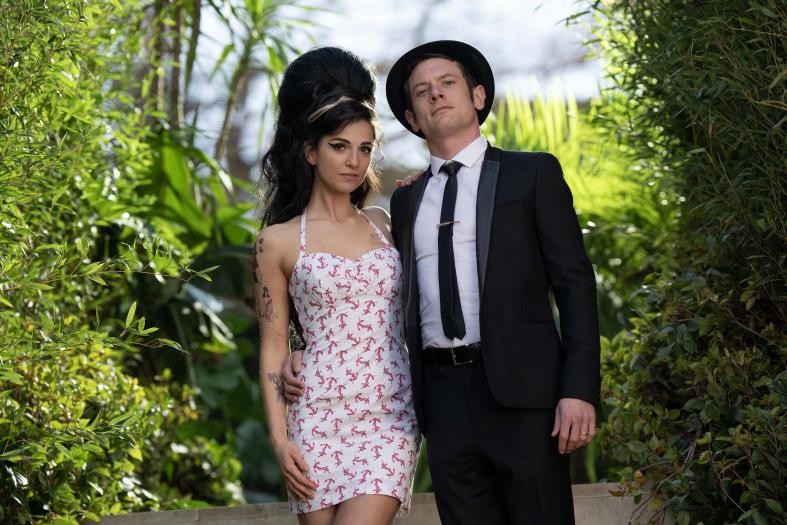Like Amy Winehouse's life, Back To Black has its highs and lows
Back To Black (M18)
123 minutes, now showing
3 stars
Making a biopic about one of the most influential artistes of all time – as well as her equally controversial life and death – was never going to be easy.
Hence, it is no surprise that biographical drama film Back To Black has invited significant debate and criticism ever since its inception, from casting choices to worries of exploitation.
And while these have proven to be unfounded, the movie is not without flaws.
Back To Black chronicles the ups and downs of Amy Winehouse’s life, but largely centres on her turbulent romance with Blake Fielder-Civil. The two shared a notoriously volatile on-off relationship fueled by violence, drugs and brushes with the law.

Marisa Abela is brilliant as the beloved but troubled musical icon, pouring heart and soul into her performance – just like Winehouse did with her art.
To prepare for her role, the actress reportedly “trained like an athlete” and took singing lessons. Audiences can expect to be entranced as Abela shows off her strong vocals, belting out some of Winehouse’s best hits with her own touch and authenticity.
Sam Taylor-Johnson, of Fifty Shades Of Grey fame, brings her artistic flair to a potentially contentious movie that touches on many delicate themes. To condense Winehouse’s legacy into a 123-minute runtime is undoubtedly challenging, but it is interesting to note what the British director has chosen to portray and omit.
As a result, the movie is well-paced and sufficiently engaging despite a lack of focus beyond Winehouse’s romantic dalliances.
Equally commendable are the movie’s costume design, make-up and wardrobe choices, which effectively highlight Winehouse’s style and evolution. For instance, her signature beehive hairdo is poofiest when the star is at her most successful, sweeping five awards at the 2008 Grammys.
Still, one cannot help but wish that the film had delved more into other aspects of Winehouse’s tumultuous life, such as her decorated music career, family entanglements, complex relationship with the press, and long-fought emotional battles. Not enough is said about her life-long struggles with substance abuse and mental illness either.
This marks the first Winehouse biopic, coming 13 years after her death in 2011. However, those hoping for any social commentary at all will be disappointed. If anything, the movie seems to suggest that Winehouse's happiness lay solely with one man, her many achievements be damned.
“I want to be remembered for just being me,” states Abela in the film. And sure, Back To Black does accomplish its mission to memorialise Winehouse – but as an unstable, tortured and lovelorn fool instead of one of the greatest talents of all time.
Get The New Paper on your phone with the free TNP app. Download from the Apple App Store or Google Play Store now


